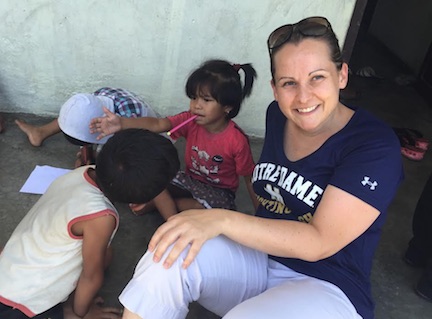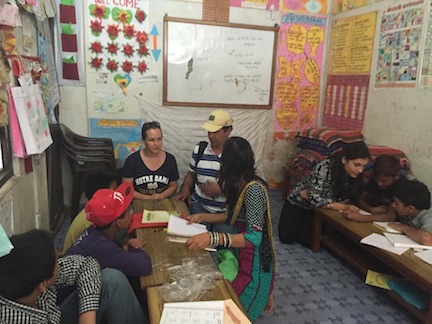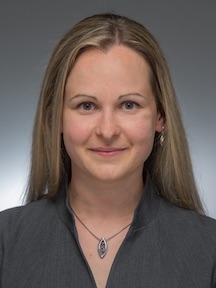By Hoda Fakhari
Eva Dziadula (ΦBK, Lake Forest College, 2007) always knew she wanted to go to college. After emigrating from the Czech Republic at 18 with little knowledge of the U.S. education system, she carved her own path to turn that dream into a reality. Before transferring to Lake Forest College, Dziadula attended a community college for two years while working full time at an orthodontic office and caring for her two young sons. She chose Lake Forest in order to benefit from the intimate learning experiences students have with faculty at a small liberal arts college.
Dziadula credits those caring faculty for providing guidance and laying the groundwork for her career as Assistant Professor of the Practice in the Department of Economics at the University of Notre Dame. “If it wasn’t for my intermediate microeconomics professor Rob Lemke, also a ΦBK member, who pulled me off to the side to ask me who I was and what my plan was, I would never have realized that I could go to graduate school and that the option was very realistic for me,” said Dziadula. “You don’t experience this at big schools.”
Dziadula was at one point considering a career in dentistry until she realized her love for economics after being exposed to the diverse selection of classes in her liberal arts program. Her evolving passion for economics and her personal experience as an immigrant led her to her current research interests in the assimilation of the foreign-born in the United States. Her published work focuses on the cultural assimilation of Asian mothers measured by preferences for the sex of their children. Some of her current research deals with the timing of U.S. citizenship and the role of marriage in that decision.
As part of a team of researchers at the Notre Dame Initiative for Global Development, Dziadula is also studying the impact and effectiveness of UNICEF’s efforts to reduce child labor in Nepal. An estimated 3.14 million children are currently engaged in child labor in Nepal, and the study seeks to evaluate methods for reducing this number and eventually integrating child laborers into society. Some of UNICEF Nepal’s efforts to combat child labor include temporary shelters, a child helpline, and vocational education services. “We can do a lot of things and spend a lot of money,” said Dziadula. “But do they actually work? That is the big question.”
In the original press release for the project, Dziadula explained, “When I discuss economic growth in developing countries with students, child labor is always a controversial topic. We all agree it is not right, but I emphasize to the students that imposing our standards is not enough. The solutions must go beyond simply making it illegal, and alternative opportunities for these children need to exist.”
After traveling to Nepal and conducting a Randomized Control Trial evaluation of the current status and perception of child labor among Nepali families, Dziadula found that, in contrast to the common perception, 90% of child laborers also attend school. Additionally, parents identified more benefits in education for boys relative to girls. The ongoing study, part of a larger project funded by the United States Department of Labor, hopes ultimately to identify policies and programs that can be quantitatively proven to reduce the prevalence of child labor in developing countries.
“I am thrilled to be actively researching topics that have the potential to make a real difference in people’s lives,” said Dziadula. In addition to her research, Dziadula is also involved in making a difference in the lives of students as part of the ΦBK selection committee at Notre Dame, where she was elected chapter historian.
“We are currently working on programs to allow our junior inductees to become more involved with the chapter and raise awareness on campus,” said Dziadula. She describes the opportunity to give back, witness student success, and work with colleagues who are like-minded in their commitment to ΦBK principles as a rewarding part of her academic career.

Dziadula working with children and parents in Nepal for her research on child labor and education.

Hoda Fakhari is a senior at the University of Illinois at Chicago majoring in biochemistry and English. She became a member of Phi Beta Kappa during her junior year. The University of Illinois at Chicago is home to the Iota of Illinois Chapter of Phi Beta Kappa.




